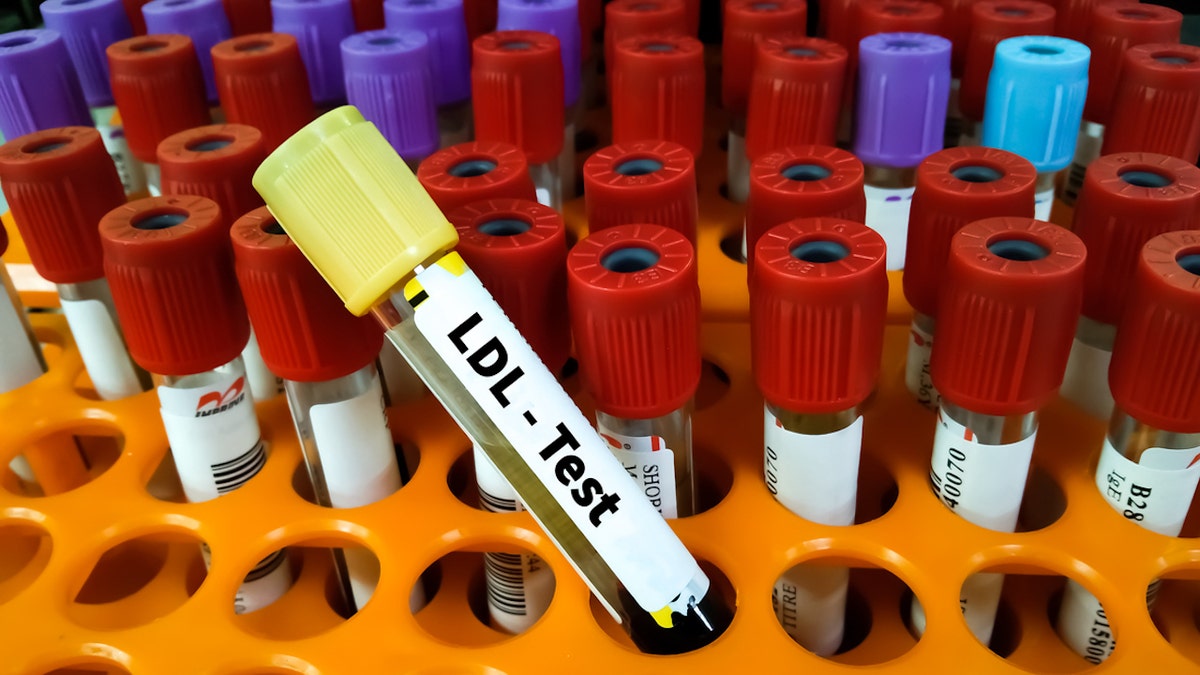The study found that heart attacks and stroke risks may decrease due to experimental drugs.

NewYou can listen to Fox News articles now!
The new daily medicine can provide an easier and more convenient way to lower cholesterol and reduce the risk of heart attacks and strokes.
The experimental drug, called Abicetrapib, was conducted in a Phase 3 clinical trial at Monash University in Australia.
The trial included more than 2,500 people averaging 65 years old. All of these have been diagnosed with heart disease, or cholesterol is genetically diagnosed, according to a university press release.
New research suggests that this cheap pantry may lower cholesterol
All participants received the “maximum tolerated dose” of cholesterol-lowering therapy.
One group received Obicetrapib and the other received a placebo while still maintaining their existing cholesterol medication.
The new daily medicine can provide an easier and more convenient way to lower cholesterol and reduce the risk of heart attacks and strokes. (iStock)
After 12 weeks, participants taking the new drug showed a 32.6% reduction in LDL cholesterol and a 33.5% reduction in lipoprotein (a) [Lp(a)]release said.
The findings were published last month at the European Atherosclerosis Society Conference in the UK and were published in the New England Journal of Medicine.
The study found that it can predict the risk of heart disease in women for up to 30 years.
“We know that even the best treatments, many at high risk of heart attacks or strokes do not put cholesterol levels low enough,” said Stephen Nicholls, director of Victorian Heart Hospital at Monash University’s Victorian University School of Cardiology and Monash Health.
“We know that even the best treatments, many at high risk of heart attacks or strokes do not put cholesterol levels low enough.”
“Obicetrapib offers a promising new option – not only does it reduce LDL cholesterol by more than 30%, but we are also seeing a decrease in LP(a), which is difficult to treat and is associated with an increased risk of heart disease.”

Low-density lipoprotein (LDL) is sometimes called “undesirable cholesterol” and is associated with negative effects when present in large quantities. (iStock)
Low-density lipoprotein (LDL) is sometimes called “undesirable cholesterol” and is associated with negative effects when present in large quantities.
LDL can accumulate in blood vessels and increase the risk of heart attacks and strokes, researchers warn.
Click here to get the Fox News app
Lipoprotein (A) or LP (a) is a protein that is known to greatly increase the chance of a heart attack, and high levels are present in the blood.
Unlike LDL, LP(a) is a genetic risk factor that cannot be modified by healthy behavior or medication.

Lipoprotein (A) or LP (a) is a protein that is known to greatly increase the chance of a heart attack, and high levels are present in the blood. (iStock)
The researchers noted that participants found obesity to be found to be “well tolerated.”
“This can be a valuable tool in the fight against heart disease,” Nichols added. “It’s convenient and effective, and it may help close the gap for patients with underselected choices.”
Click here to sign up for our health newsletter
The researchers noted that the study, funded by the Netherlands-based Obicetrapib developer Newam Pharma, does have some limitations.

The researchers noted that participants found obesity to be found to be “well tolerated.” (iStock)
For example, no participants were selected based on high LP(A), which means that the study did not determine how the drug affected drugs with elevated protein levels.
Furthermore, the study evaluated changes in LDL levels but did not measure actual heart attack or stroke outcomes.
For more health articles, please visit www.foxnews.com/health
The researchers acknowledge that more studies are needed to follow patients longer periods and include more diverse cohorts.
Fox News Digital contacted researchers for additional comments.



